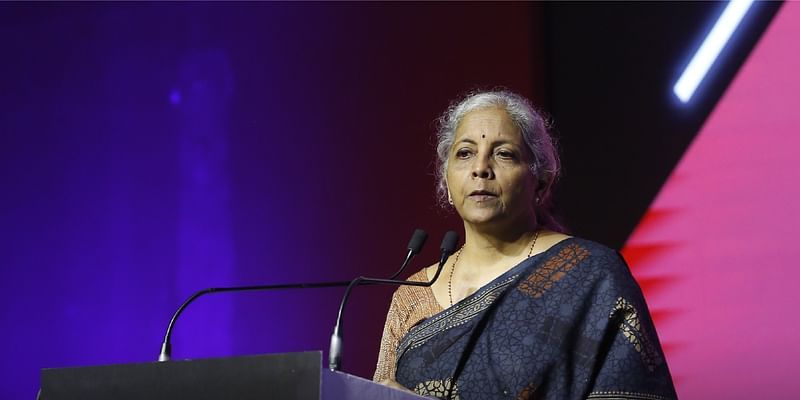Union Finance Minister Nirmala Sitharaman on Thursday denied any “friction” in the ties between the Centre and states over Goods and Services Tax and emphasised that the federal structure in this economic reform should be respected.
Simplifying and easing compliance on the taxpayers received top priority rather than raising revenue during all consultative meetings on the Union Budget, she said.
“Revenue is the last consideration with which every budget meeting happens. You may think that I am not telling the truth. The hard truth I would like to put before you. Yes, we like to raise revenue. During several consultations including those with Prime Minister Narendra Modi, revenue raising came last. But, simplifying, easing and compliance of taxpayers came first,” Sitharaman said.
Addressing a meeting on “The Finance Minister’s Insight: Path Forward” held under the aegis of the Revenue Bar Association here, she said the average Goods and Services Tax (GST) rate decreased to 12.2% as of 2023, which was much below the revenue neutral rate (RNR), originally suggested at 15.3%.
“We did see how much effort happened at ground level to bring one nation-one taxation,” she said.
On a charge in certain quarters on one of the biggest economic reforms in India, Sitharaman said “I completely deny that there’s a lot of friction in GST relationship with states…The Centre is not extracting revenue from states.”
The federal structure in the GST framework has to be respected so that both the Centre and States could work together to promote developmental activities besides widening the tax base, she said. “That’s the spirit with which we are working,” the Finance Minister stressed.
The spirit of revenue generation for both Centre and states should be to see how evasion could be avoided or targeted, how this should be addressed, and compliance ensured by making people think it is better and easier to comply than to evade, she said.
Finance Ministers representing various states attending the GST council meeting spoke on how to facilitate greater simplification, greater rationalisation and revenue generation. “So, for those who all want to believe that discordant notes guide finance ministers’ meeting, I would like to say that’s the place where the least politics works,” she said.
Every finance minister wanted good revenue generation and to widen the tax base. “And when he goes back to his constituency he should be able to answer people that we are not extracting revenue which is not justified,” Sitharaman added.








![Read more about the article [Startup Bharat] Why this agritech startup believes the future of farming is in hydroponics](https://blog.digitalsevaa.com/wp-content/uploads/2021/06/imageonline-co-logoadded38-1623755710158-300x150.jpg)

